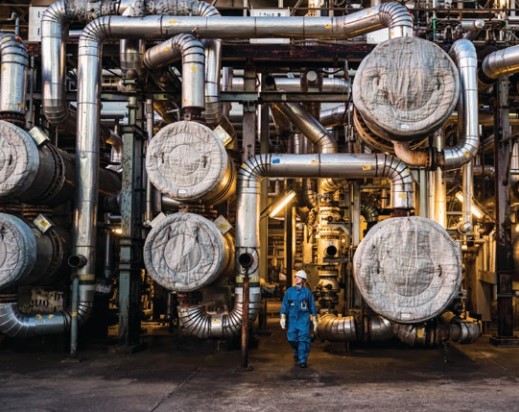‘The world remains on an unsustainable path’ – bp’s new Review of World Energy Statistics
Every year, early in the summer, bp produces its Statistical Review of World Energy. Unlike many other energy publications, the Review does not purport to contain new information or offer forecasts. However, what it does do is bring together a wealth of global information in one place, along with Excel spreadsheets that contain all the data, and make it considerably easier to compare different countries and different fuels and other factors, such as carbon emissions, and with these develop a better understanding of what is happening in the energy world, and the wider world since it is powered by all that energy (and nothing else).
Though the Review does not contain forecasts, this year it does contain a rather important statement which could be construed as an implied forecast and is one of the most important messages to take away from this document. The statement comes from bp’s Chief Economist, Spencer Dale. He says, part way through his fairly sombre assessment of 2021, influenced by the Russian attack on Ukraine happening in 2022, that ‘the world remains on an unsustainable path.’ Much of this unsustainable path is ironically owing to the world consuming too much of his company’s two primary products, oil and gas. He is effectively saying use less of my company’s products but he then says that primary energy, over half of which (55%) is oil and gas, has increased by nearly 6% on the lock-down year of 2020 and is now at a historical record, having surpassed the previous peak year of 2019.
To underscore the role of fossil fuels in the ‘unsustainable path’, the Review shows that reliance on fossil fuels has fallen only three percent in five years, so that now only 82% of our energy comes from oil, gas and coal, the three main causes of global warming. At that rate, apparently, it would take 137 years to get off fossil fuels. The deep message seems to be that unless something dramatic changes, the low carbon world required within a decade or two is actually more than a hundred years away.
However, even that reduction in percentage of primary energy is completely illusory because the total amount of fossil fuels being burned is actually going up – by 5.6%, not down! So in fact we’ll never become carbon neutral or low-carbon or anything of the sort, we’ll just become more and more carbon-addicted.
To prove the point, Chief Economist Dale notes that ‘the pronounced dip in carbon emissions in 2020 was only temporary’ and his data show that now we are just 0.6% below pre-Covid emissions.
There are two other vital points to make in this quick first look at the new Stats Review: all nations are calling loudly for more growth in order to cure the problems caused by high energy prices, which themselves are caused by demand growth outpacing supply growth. However, whilst at the global level all the carbon indicators are going in the wrong direction, in the industrialised world, energy use and emissions have actually been falling, even before Covid.
Before getting too excited by this apparent good news one should know that the fall is not large and that it is not easy to work out how much of this is simply because industrial production of the items consumed in vast quantities in the West has simply been shifted to China and the East. We are literally getting them to do our dirty work; if those hidden emissions and implied energy use are repatriated to their true origin, things don’t look so good for the West, though that cannot be calculated from the bp stats alone.
The second point is that whilst it is clear that overall fossil fuel use is going to have to fall dramatically and quickly for any hope of avoiding massive climate change effects as well as general eco-destruction on a scale approaching the Chicxulub asteroid hit which destroyed the dinosaurs, ironically some people are going to have to increase their energy use otherwise they will go on burning highly polluting biomass like wood and dung. That increased energy use will have to be clean energy otherwise there is once again no hope of avoiding massive climate change.
Therefore, if poor people, numbering a mere two or three billion souls, must increase their (clean) energy use in order to decrease emissions, the well-off world is going to have to use even less energy so that the poor can have more like a fair share of a limited supply. This is clearly not happening and without a colossal, and frankly unimaginable, change in education and mindset in the industrialised world, it is very hard to see how it could even begin.
The bp Statistical Review of World Energy 2022 (including data in Excel format) is available from: https://www.bp.com/en/global/corporate/energy-economics/statistical-review-of-world-energy.html

